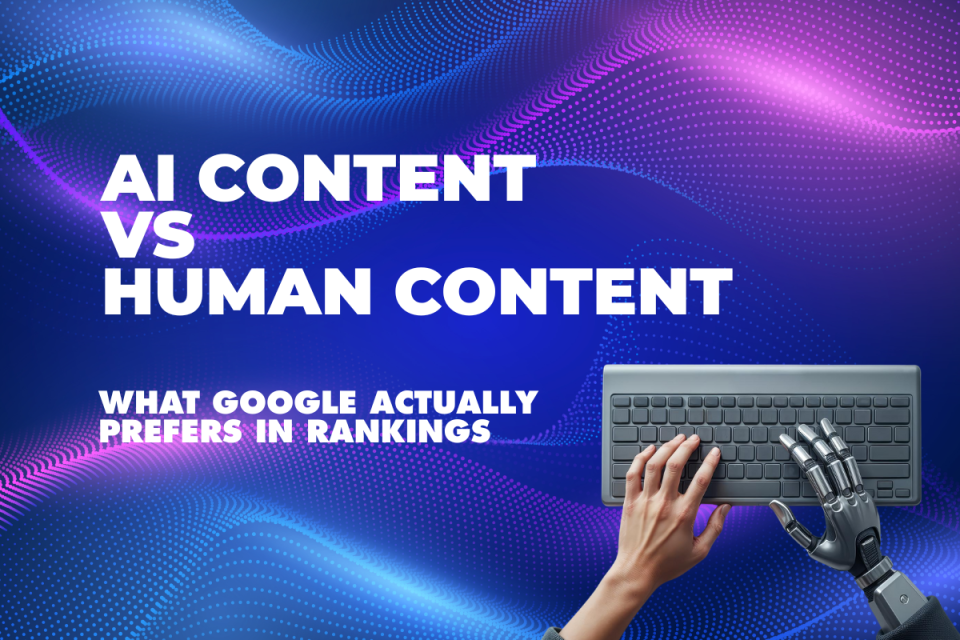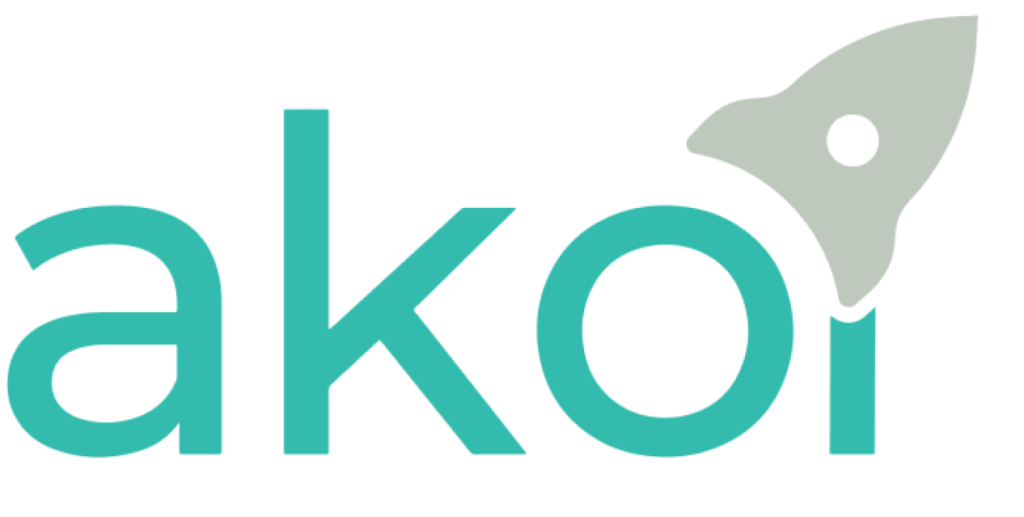The rise of artificial intelligence has completely reshaped the content marketing landscape. Today, AI-generated content is everywhere — from blog posts and social media captions to ad copies and even long-form guides. Tools like ChatGPT, Jasper, and Gemini are making it faster and cheaper for brands to publish content at scale.
But as this shift accelerates, one pressing question keeps surfacing: What does Google really prefer in rankings — AI content or human content?
The answer isn’t as straightforward as choosing one over the other. Instead, it lies in how both can be used strategically. In this blog, we’ll explore the strengths and weaknesses of each, Google’s stance, and why the future belongs to brands that combine AI with human creativity.
Understanding AI Content vs Human Content
Before diving into what Google prefers, it’s important to clarify the difference between the two.
- AI Content: Generated using artificial intelligence, often leveraging machine learning models trained on billions of data points. AI content is fast, scalable, and highly structured — but it can sometimes lack originality, personality, or depth.
- Human Content: Written by professional writers, strategists, or subject-matter experts. Human content reflects personal experience, tone, storytelling, and emotional connection. It’s slower to produce but typically resonates better with audiences.
Both play significant roles in modern content strategies. The challenge lies in understanding how to optimize them for Google rankings.
What Google Says About AI-Generated Content
Contrary to early fears, Google does not automatically penalize AI-generated content. Instead, Google’s Search Central Guidelines emphasize that:
- The method of creation doesn’t matter as much as the quality of the output.
- Content should provide value, relevance, and originality to the end user.
- Google uses E-E-A-T (Experience, Expertise, Authoritativeness, Trustworthiness) to evaluate whether content should rank.
This means that an AI-written article that’s well-structured, factually accurate, and optimized for user intent can perform just as well as — or sometimes even better than — mediocre human-written content.
However, Google has also made it clear that spammy, thin, or low-value AI content will be demoted in rankings. Brands cannot simply flood the internet with machine-written posts and expect to dominate search results.
Strengths and Weaknesses of AI vs Human Content
To fully understand how Google evaluates AI content vs human content, let’s look at the strengths and weaknesses of each approach.
Strengths of AI Content:
- Extremely fast and cost-efficient
- Perfect for bulk content like product descriptions or FAQs
- Can process and generate data-heavy insights quickly
- Great for keyword-rich outlines and draft generation
Weaknesses of AI Content:
- Lacks unique perspective or first-hand expertise
- Risks producing repetitive or generic content
- May provide outdated or incorrect information if unchecked
- Often fails to establish trust or emotional engagement
Strengths of Human Content:
- Creative storytelling, personality, and emotional resonance
- Offers unique experiences, opinions, and authenticity
- Builds deeper audience trust and long-term loyalty
- Stronger alignment with Google’s E-E-A-T principles
Weaknesses of Human Content:
- Slower to produce, requiring more time and cost
- May lack consistency if produced by multiple writers
- Limited scalability for high-volume publishing
In short: AI is efficient, but humans create credibility. Google wants both — efficiency with trustworthiness.
How Google Actually Evaluates Content in Rankings
When deciding what to rank higher, Google looks at multiple quality signals beyond whether content is AI or human-written.
- Relevance to Search Intent → Does the content directly answer the query?
- Accuracy and Trustworthiness → Is the information factually correct and backed by expertise?
- Originality → Is it unique, or just a rehashed version of existing content?
- User Experience → Is the content well-structured, readable, and engaging?
- Engagement Metrics → Do users spend time on the page, or bounce quickly?
- E-E-A-T Factors → Does the author have expertise? Does the content reflect real-world experience?
Google updates like Helpful Content Update and Core Algorithm Updates specifically target thin AI content farms, while rewarding well-crafted, authoritative pieces — regardless of how they were created.
AI Content vs Human Content: What Google Prefers
So, the big question — does Google prefer AI content or human content?
The answer: Google prefers high-quality content that satisfies user intent, regardless of how it’s created.
If AI-generated content is accurate, original, and well-structured, it can rank well. But if it lacks depth or credibility, Google will downgrade it. On the other hand, human-written content naturally carries trust signals and creativity, but it must still be optimized for SEO to perform.
Ultimately, Google’s algorithms don’t reward the creator of the content, but the value of the content.
The Smart Strategy: Blending AI with Human Creativity
The future of SEO isn’t about choosing between AI and humans. Instead, it’s about combining the best of both worlds.
Here’s how successful brands can use this hybrid approach:
- AI for Efficiency → Use AI to generate outlines, keyword clusters, or first drafts.
- Human for Depth → Add unique insights, storytelling, and industry expertise.
- Fact-Check Everything → Ensure accuracy to meet Google’s trust signals.
- Optimize for SEO → Apply structured data, meta tags, and keyword optimization.
- Maintain Brand Voice → Keep consistency with human editing and brand personality.
This blended approach ensures content is scalable, SEO-friendly, and credible — the perfect mix that Google rewards.
Why Brands Can’t Ignore This Balance
As AI adoption grows, the digital space is getting crowded with automated content. This means competition for visibility is fiercer than ever. Brands that rely only on AI risk producing generic content that disappears in the noise. Meanwhile, brands that rely only on human writing may struggle to keep up with the speed of publishing.
The winners will be the ones who master the balance — producing content at scale with AI while polishing it with human creativity and expertise.
If your competitor is already blending AI and human content, they’re not just keeping up with Google’s expectations — they’re setting the new standard.
Final Thoughts: Ranking Higher with AKOI
The debate isn’t really AI Content vs Human Content. The real question is: How can brands use both effectively to meet Google’s ranking signals?
Google doesn’t care whether your blog was drafted by AI or written by a professional writer. It cares about accuracy, authority, and usefulness. Brands that ignore this balance will struggle, while those that adapt will win.
At AKOI, a leading digital marketing agency in India, we specialize in combining the power of AI with human expertise. Our team ensures your content strategy is not only SEO-optimized but also authentic, engaging, and future-proof.


